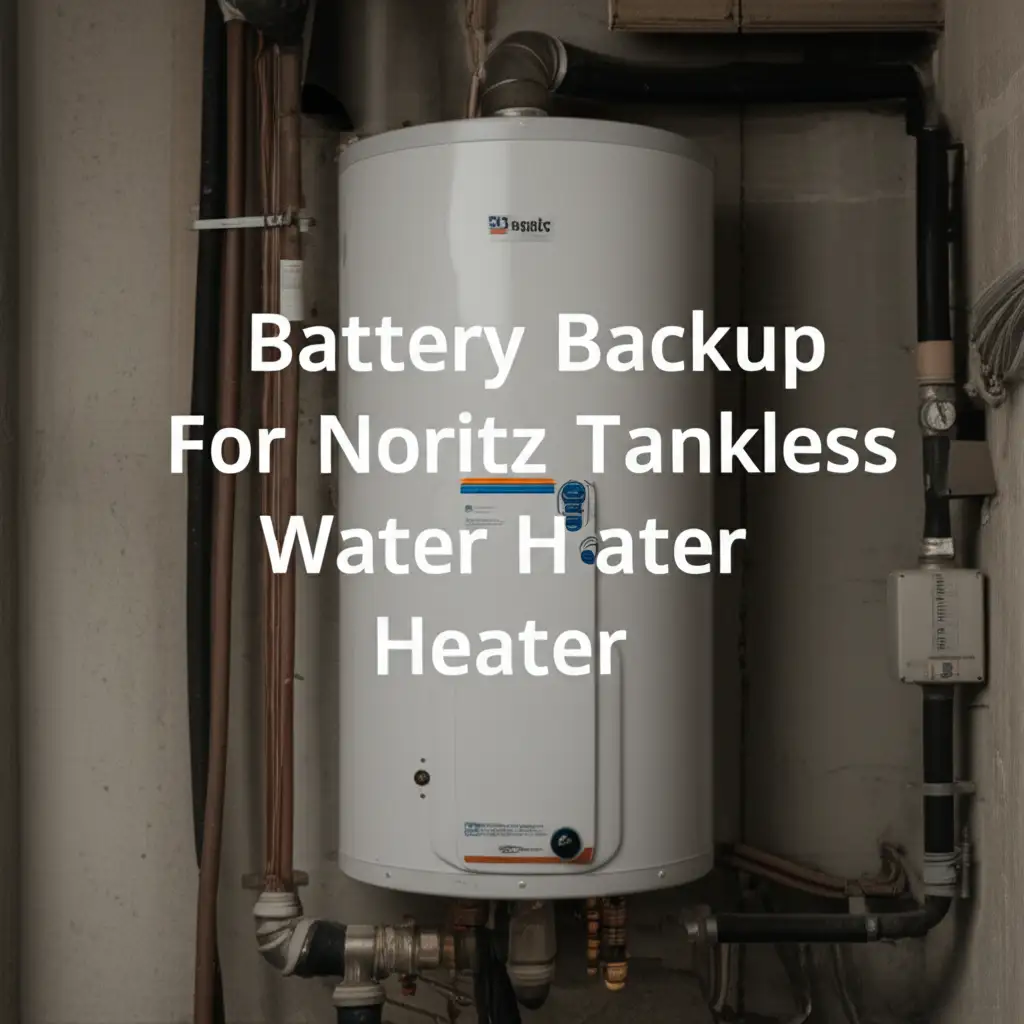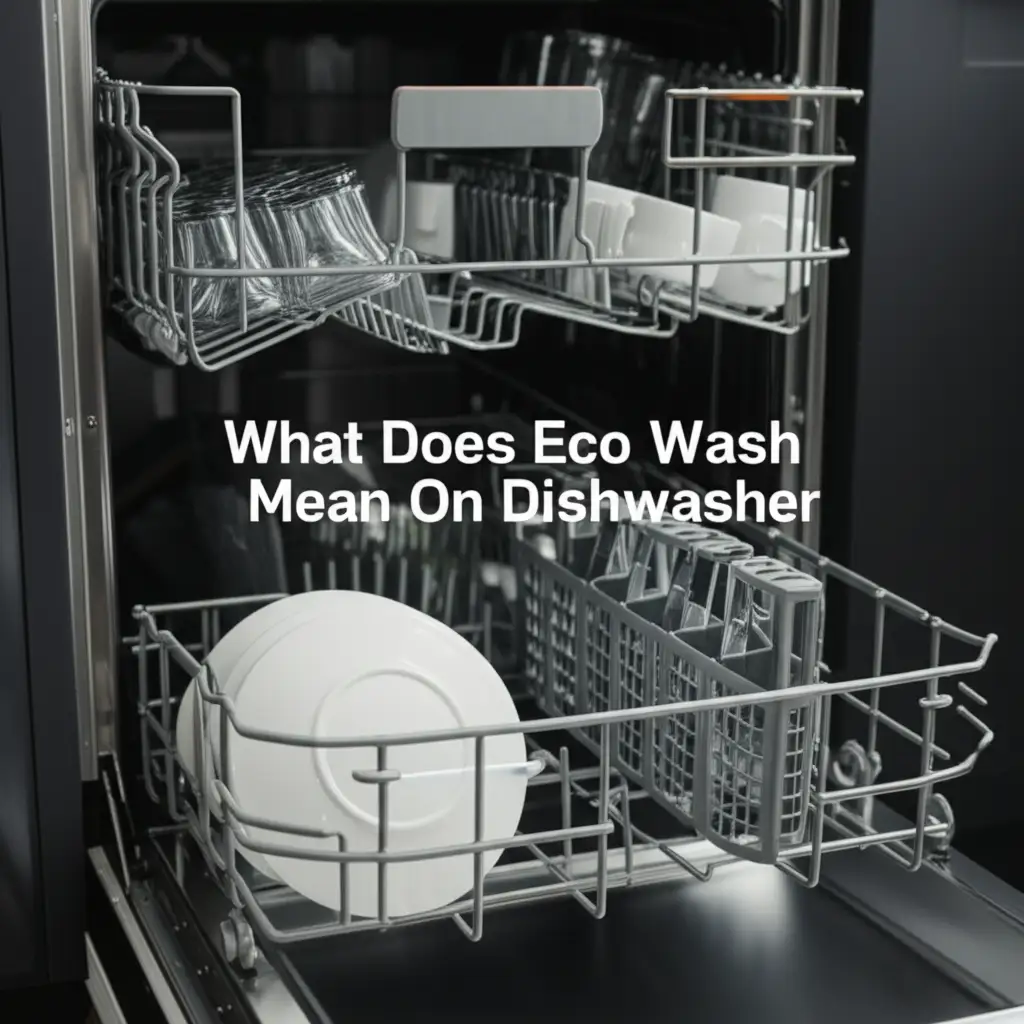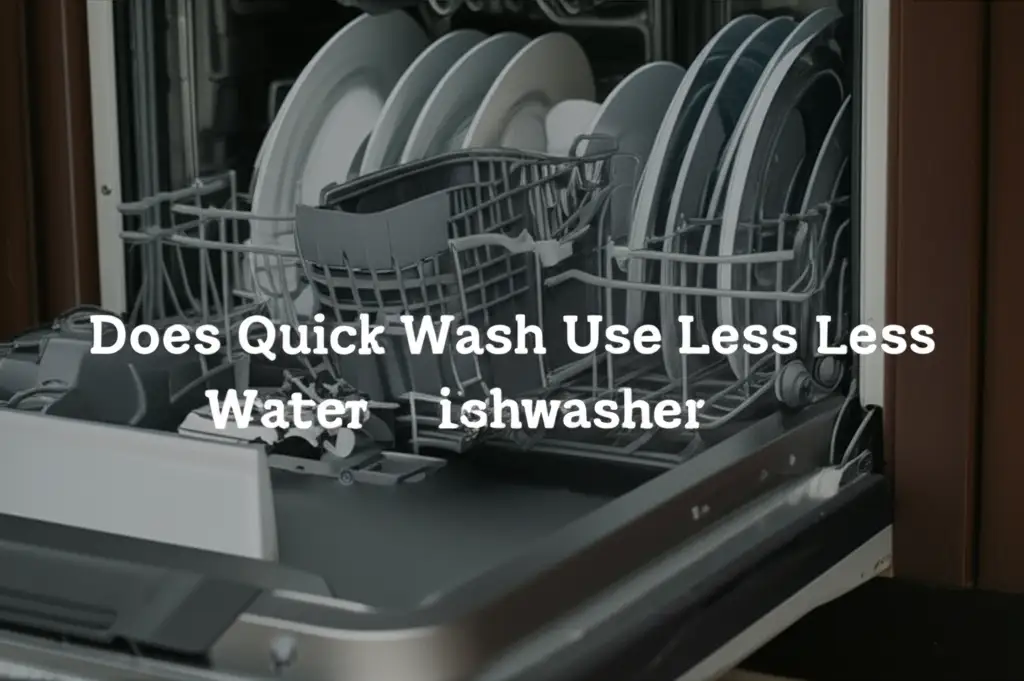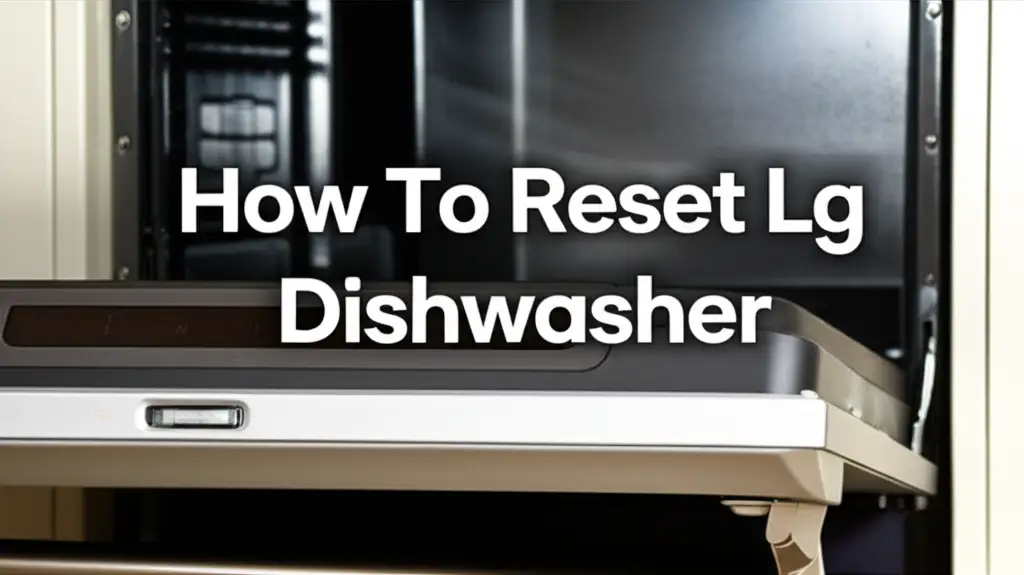· Mason Everett · Home Appliances · 11 min read
Are Two Water Heaters More Efficient Than One
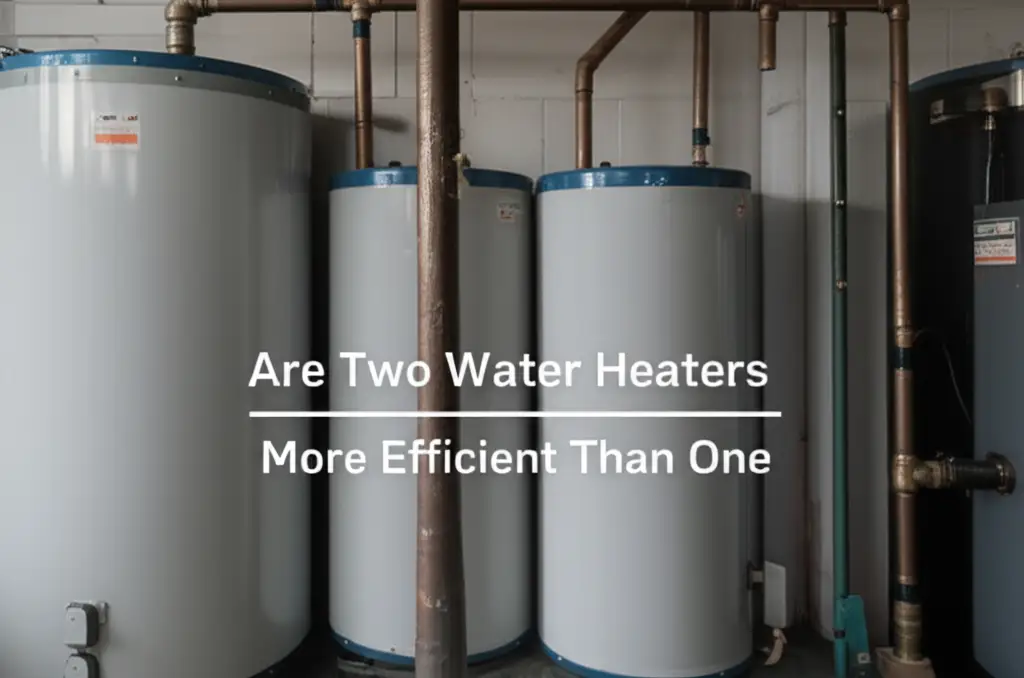
Are Two Water Heaters More Efficient Than One? Understanding Dual Systems
You might wonder if having two water heaters truly makes a difference. Many homeowners ask if doubling up offers energy savings or better hot water supply. We explore the facts about dual water heater setups. This article helps you understand if two water heaters are more efficient than a single unit for your home. We will look at different types of systems, their costs, and how they perform. You will learn about hot water demand and how to best meet it.
Takeaway:
- Dual water heater systems can provide more hot water, but not always more efficiency.
- Efficiency depends on usage patterns, water heater type, and system sizing.
- Larger homes or those with high peak demand often benefit most from multiple units.
- Tankless water heaters offer a highly efficient alternative to multiple tank units.
- Proper installation and maintenance are key for any hot water system’s performance.
Having two water heaters is not inherently more efficient than one. Their efficiency depends on your home’s hot water demand, system type, and proper sizing. For some homes, two heaters improve comfort and supply. For others, a single, correctly sized unit or a tankless system is more efficient.
Understanding Hot Water Needs: Do You Need More Capacity?
Every home uses hot water. We use it for showers, laundry, and dishes. Your hot water demand changes throughout the day. A large family might use several showers at once. This creates a high peak demand for hot water. A small household might have very low demand.
Your home’s size and the number of people living in it shape your hot water needs. Appliances like washing machines and dishwashers also draw hot water. If your current water heater cannot keep up, you experience cold showers. You might also notice lukewarm water from faucets. This indicates a capacity issue, not necessarily an efficiency problem. Sometimes, adding a second water heater addresses this capacity gap.
Consider how much hot water you truly need. Think about peak usage times. Do multiple people shower back-to-back? Do you run the dishwasher and laundry simultaneously? Understanding these patterns helps determine if you need more hot water. It guides your decision on whether one or two water heaters suit you best.
Single vs. Dual Water Heater Systems: The Core Difference
A single water heater system is common. One unit heats and stores all the hot water for your home. This works well for most average-sized households. The unit’s capacity and recovery rate define its performance. Capacity is the total volume of hot water it holds. Recovery rate is how quickly it heats a new batch of water.
A dual water heater system involves two separate units. These units work together to supply hot water. They can be installed in series or in parallel. In a series setup, one heater pre-heats water for the second. The second heater then brings it to the final temperature. This setup can reduce the workload on the second unit. In a parallel setup, both heaters independently supply hot water. They share the load, effectively doubling capacity.
The main difference lies in capacity and redundancy. Two heaters offer double the hot water storage. They also provide faster recovery times. If one unit fails, the other can still supply some hot water. This provides a backup. However, two units also mean higher upfront costs and more space. They also consume more standby energy if not managed correctly. Choosing between single and dual systems depends on your home’s specific requirements.
Efficiency Factors of Water Heaters: Beyond Just Quantity
When we talk about water heater efficiency, we consider how well a unit converts energy into hot water. We also look at how much heat it loses. The Uniform Energy Factor (UEF) rating helps compare different models. A higher UEF means more efficient operation. Factors like insulation, burner design, and heat exchangers play big roles.
Storage tank water heaters lose heat over time. This is called standby heat loss. Even if you do not use hot water, the heater works to maintain temperature. Two storage tank heaters can mean more standby heat loss. Each tank has its own surface area. Heat escapes from both. Better insulation on the tanks reduces this loss. If two smaller, less efficient units are installed, they might consume more energy than one larger, highly efficient unit.
Modern water heaters, including some of the Lochinvar water heaters, come with improved designs. These designs help minimize standby losses. They use better insulation and more efficient burners. For gas models, a clean air intake screen water heater helps maintain combustion efficiency. This ensures the unit burns fuel effectively. Looking at the overall UEF rating is important. It gives a clear picture of true energy performance.
When Dual Water Heaters Make Sense: Capacity and Recovery
For some homes, two water heaters offer clear advantages. Large homes with many bathrooms often benefit. Homes with high peak demand also see benefits. Imagine a family of six, where everyone showers in the morning. A single water heater might struggle to provide enough hot water. It would run out quickly. Two water heaters, especially if sized correctly, prevent this. They provide enough hot water volume. They also recover faster.
Homes with luxury amenities might also need dual systems. Large bathtubs, multi-head showers, or spa systems demand a lot of hot water. Multiple powerful appliances like washing machines and dishwashers increase demand. For example, you may wonder, do dishwashers have water heaters? Most modern dishwashers rely on your home’s hot water supply. They do not heat water themselves, or they only boost already hot water. This means they add to the overall hot water load.
When considering dual water heaters, think about your lifestyle. If frequent cold showers are a problem, or if your family’s hot water usage overlaps significantly, two units can solve it. They ensure continuous hot water supply. This greatly improves comfort and convenience for your household.
Exploring Tankless Water Heater Options: A Different Efficiency Path
Tankless water heaters offer an alternative to traditional tank systems. These units heat water on demand. They do not store any hot water. This eliminates standby heat loss entirely. When you turn on a hot water faucet, cold water flows into the unit. A powerful heating element activates instantly. It heats the water as it passes through. This means you get endless hot water.
Tankless systems are highly efficient. They only use energy when hot water is needed. This can lead to significant energy savings over time. However, their upfront cost is usually higher than tank models. Installation can also be more complex. This is especially true for gas tankless units, which may require new gas lines or venting.
For homes with high hot water demand, a single tankless unit might be enough. Some very large homes, however, might still consider two tankless units. Two tankless units could be installed to handle extremely high, simultaneous hot water demands. This would be even more efficient than two traditional tank units. A tankless system can be a great choice for energy-conscious homeowners. It also suits those who value continuous hot water supply.
Installation, Costs, and Maintenance for Multiple Units
Installing two water heaters involves more work than installing one. You need space for both units. You also need proper plumbing connections. Gas lines or electrical wiring must be sufficient for both heaters. This often means higher installation costs. You pay for more materials and more labor. When considering brands, understanding Apollo water heater replacement cost or other brand-specific costs can help budget for initial setup and future replacements.
Operating two water heaters also means higher running costs. Each unit consumes energy. While they provide more hot water, they also add to your utility bill. You will have two pilot lights if they are gas units. You will have two heating elements if they are electric. This doubles certain aspects of energy consumption compared to a single unit. However, if two smaller units are run less frequently or cycle efficiently, the total impact might be less than expected.
Maintenance is also a factor. Two units require twice the upkeep. This includes flushing the tanks annually. You also need to check anode rods and other components. For example, replacing an AO Smith water heater anode rod is a common maintenance task. With two units, you perform this task for both. Regular maintenance ensures efficiency and extends the lifespan of each heater. Neglecting maintenance can lead to breakdowns and decreased efficiency. It can also lead to premature replacement costs for both units. Proper care is key for any system.
Optimizing Your Hot Water System: Tips for Energy Savings
Regardless of whether you have one or two water heaters, you can always optimize your system for better efficiency. Start by setting the temperature correctly. Most homes do not need water hotter than 120°F (49°C). Lowering the temperature by even a few degrees saves energy. It also reduces the risk of scalding.
Insulate your hot water pipes. This simple step reduces heat loss as water travels from the heater to your faucet. It ensures more hot water reaches you, rather than losing heat to the air. You can also insulate the hot water tank itself, especially older models with less insulation. A water heater blanket provides an extra layer of protection against standby heat loss.
Regular maintenance is crucial for efficiency. Flush your tank annually to remove sediment buildup. Sediment reduces heating efficiency. It also shortens the lifespan of your unit. Check and replace the anode rod as needed. This prevents tank corrosion. Consider installing low-flow showerheads and aerators. These devices reduce the amount of hot water used. This directly lowers your demand. You will save energy even with a high-capacity system. For gas water heaters, ensure the air intake is clean. This allows for efficient combustion. These small changes add up. They lead to noticeable energy savings over time.
FAQ Section
Q: Is two water heaters more efficient for a small home? A: No, for a small home, two water heaters are rarely more efficient. A single, properly sized water heater is usually sufficient. Adding a second unit would likely increase standby heat loss and energy consumption. It would also increase initial costs and maintenance. Focus on a single efficient unit for small homes.
Q: How do tankless water heaters compare to dual tank systems? A: Tankless water heaters are generally more energy-efficient than dual tank systems. They heat water on demand, eliminating standby heat loss. Dual tank systems increase capacity but still suffer from standby loss from two tanks. Tankless units provide endless hot water, while dual tanks only provide double the stored amount.
Q: What are the main drawbacks of having two water heaters? A: The main drawbacks include higher upfront installation costs, increased space requirements, and potentially higher standby energy losses. Maintenance costs double. If not properly controlled, two heaters might cycle more than needed. This leads to higher overall energy consumption compared to a single, optimized system.
Q: Can I combine a tank and tankless water heater? A: Yes, you can combine a tank and tankless water heater. This setup is often called a hybrid system. The tankless unit can pre-heat water for the tank, or act as a booster. This setup can reduce the tank’s workload. It might also improve overall efficiency and hot water availability for very specific, high-demand situations.
Q: How do I size a water heater for my home? A: Sizing a water heater involves considering your family size and peak hot water demand. For tank units, look at the First Hour Rating (FHR). This indicates how much hot water the heater can deliver in the first hour. For tankless units, consider the GPM (gallons per minute) flow rate needed for simultaneous hot water use.
Conclusion
Deciding if two water heaters are more efficient than one involves many factors. It is not a simple yes or no answer. For most average-sized homes, a single, highly efficient water heater is the best choice. These modern units provide ample hot water. They also keep energy consumption low. For larger households with high hot water demand, two water heaters can offer unmatched capacity and convenience. They ensure you never run out of hot water, even during peak times.
Think about your family’s daily hot water use. Consider your budget and available space. Also, explore modern tankless options, which provide continuous hot water with great efficiency. Ultimately, the goal is to have enough hot water for your needs without wasting energy. We can help you choose the right system. Get expert advice to find the perfect hot water solution for your home. This ensures comfort and energy savings.


